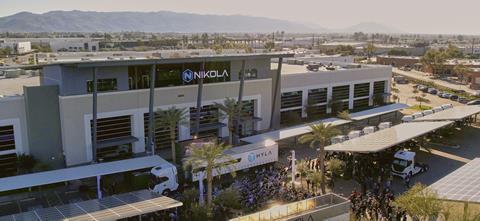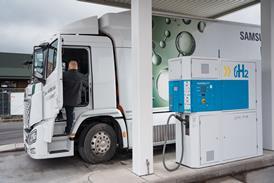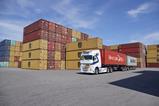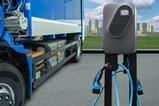US truck manufacturer Nikola Motor recently reported its fiscal 2022 results, with sales amounting to $50.8 million and losses totalling $784 million. The fourth quarter of 2022 saw revenues of $6.56 million, a significant drop from the third quarter’s $24.2 million, with losses of $222.1 million, says the company. Production increased during Q4, with the company manufacturing 133 battery-electric (BEV) trucks in Q4 compared to 75 in the previous quarter. Despite this, only 20 of those trucks were delivered to customers, leading to a decline in sales. In 2022, Nikola delivered a total of 131 BEV trucks.

For 2023, the company plans to deliver between 250 and 350 BEVs, which could result in a lower average production level compared to Q4. Additionally, the first 125 to 150 fuel cell electric (FCEV) trucks are expected to be delivered in Q4 2023.
Nikola also provided an update on the development of its fuel cell truck, with successful pilot tests conducted with Walmart and TTSI. Ten improved FCEV gamma trucks will be built for further pilot testing and product validation based on the experience gained from the 17 FCEV beta trucks, the company said.
“During the fourth quarter we strengthened our commercial and sales operations, which is expected to lead to increased sales and accelerated customer deliveries,” said Nikola CEO Michael Lohscheller. He also noted the significant progress made on both the truck and energy infrastructure fronts, citing advancements made in battery charging and hydrogen solutions with strategic partners, as well as the unveiling of the hydrogen mobile fueler under the HYLA brand. These developments, according to Lohscheller, will allow Nikola to provide fully integrated mobility solutions to customers for both the BEV and FCEV markets.
Despite the significant losses reported in 2022, Nikola is hopeful that its increased production and successful pilot tests will lead to higher sales and improved financial results in the future. With the planned delivery of more BEVs and FCEVs in 2023, the company appears to be making strides towards achieving its goals of providing sustainable transportation solutions.


















